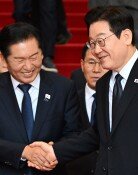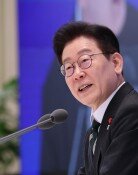[Editorial] Seoul should improve relations with Moscow
[Editorial] Seoul should improve relations with Moscow
Posted October. 15, 2000 20:21,
The 10th anniversary of the establishment of diplomatic relations between Seoul and Moscow fell on Sept. 30. Yet, it is quite upsetting to learn that the bilateral relations between the two countries have recently been strained.
Two years ago, Russia expelled our diplomat. This time, Russian President Putin has apparently refused to meet South Korean Prime Minister Lee Han-Dong, who was making an official visit to Russia. Such developments are rather extraordinary in view of the established protocol that a country's prime minister is usually accorded the courtesy of meeting the head of the nation he or she is visiting. But, it was learned that the Kremlin did not arrange the schedule for Prime Minister Lee's meeting with Putin until the last day of his stay in Moscow, although Premier Lee advised the Kremlin well in advance of his wishes to meet Putin.
According to Moscow's superficial excuse, Putin's busy schedule was responsible for Premier Lee's aborted meeting with the Russian president. Diplomatic analysts here see it, however, as an expression of Moscow's recent discontent and discomfort toward Seoul. Against this backdrop, the reasons for the continued postponement of Putin's visit to Seoul should also be understood.
Moreover, Russian President Putin first suggested to President Kim Dae-Jung at their meeting in New York that all pending issues, including his visit to Seoul, be discussed at the two countries' prime ministers' conference. In fact, this is known to be the reason for Prime Minister Lee's visit to Moscow.
Yet, Seoul's premier was denied the customary protocol of meeting Russian President Putin. Thus, diplomatic officials are now of the opinion that the issue of Putin's Korea visit should be discussed between the leaders of the two countries at the APEC summit next month.
Putin already visited Pyongyang in July, but he appears somehow wary of visiting Seoul, which is indicative of the fact that Seoul-Moscow bilateral relations are rather unusual or in trouble. Russia has repeatedly expressed, formally or informally, its displeasure with us. The gist of Russia's complaint has to do with its exclusion from the Four-Party Talks on the issue of the Korean peninsula.
In addition, Russia desires to make inroads into Seoul's defense industries. Prime Minister Lee has apparently been asked to purchase Moscow's submarines. But, we cannot readily satisfy the Kremlin because the Russian products do not correspond to our arms specifications and overall weapons systems. Nor are we in a position to give final answers to satisfy Moscow's desires on such issues as the connection of the inter-Korean Kyongui railway with the Siberian railway. The $1.5-billion debt Russia owes us is still outstanding.
Nevertheless, the strained bilateral relations between the two nations will benefit neither side. Now is a time in which changes in the peninsula's international environment take place rapidly day by day. The maintenance of balanced and harmonious relations with the four powers surrounding the peninsula appears imperative for our national interest.
Moscow, on the other hand, must be aware of the fact that its diplomatic and economic influence in Northeast Asia will be drastically reduced if its relations with South Korea become more distant.







